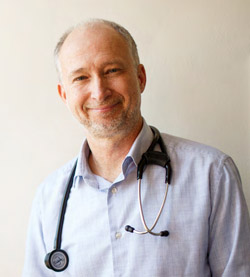Why Do Some Elite Controllers Stop Controlling HIV?
By Jeffrey Laurence, M.D.
Research Question
A small minority of people living with HIV can suppress their viral load to levels at which the risk of HIV transmission and disease development are very low—all in the absence of antiretroviral therapy. Defining the mechanisms of such control may be key to understanding how we might replicate this “functional cure” in others. Unfortunately, each year some 1-2% of HIV controllers lose this ability. Understanding why may contribute to our understanding of which elements are vital to maintaining elite control of HIV.
Findings

Prior research linked HIV control to robust functioning of CD8+ killer T cells. In this study, Dr. Steven Deeks of the amfAR Institute for HIV Cure Research and colleagues examined serial blood samples from 34 HIV controllers, half of whom maintained such control for at least two years and half of whom lost it. These individuals were matched for age, sex, race, HLA tissue types linked to HIV control, baseline levels of virus, and CD4 T cell counts at the start of the study.
What differed between the two groups? It was not HIV reservoir size, which was similar in both groups. Likewise, the ability of killer T cells to recognize HIV-infected cells remained, even in those who lost control. The loss of control was also not attributable to exhaustion or aging of the CD8 T cells.
What was different related to genes responsible for the proliferation of the toxic killing molecules that CD8 T cells produce. In addition, CD8 cells taken from lymph nodes showed poor functioning in the aborted control vs. durable control groups.
Impact
The authors concluded that “maintenance of HIV-specific CD8+ T cell functionality is a key component of durable [HIV control]. This work has implications for development of immunotherapies to achieve HIV remission.”
amfAR’s Role
amfAR was a funder of this research.
Original Article
http://www.ncbi.nlm.nih.gov/pubmed/34496223
Dr. Laurence is amfAR’s senior scientific consultant.
Share This:
